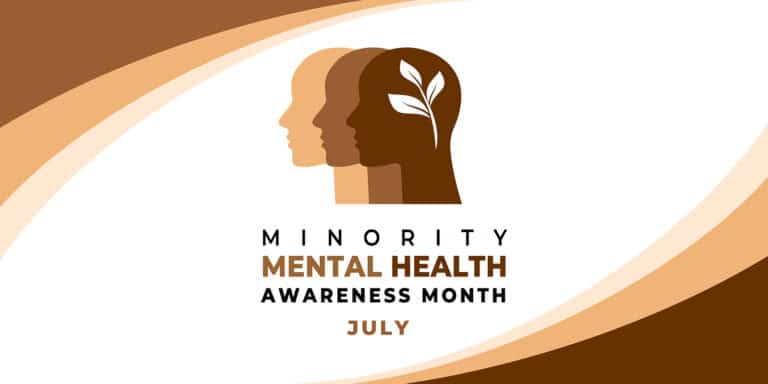Committing To A Supportive Environment For Mental Health Care In Diverse Communities
July, National Minority Mental Health Awareness Month, is a crucial time to shine a light on and address the unique mental health challenges faced by minority communities across the United States. This celebration is a poignant reminder of the disparities that exist in access to mental health care and the stigma that often surrounds seeking help within these communities.
Mental health issues affect people from all walks of life; however, minority groups often encounter additional barriers when it comes to receiving appropriate support. Factors such as cultural stigma, sexual orientation, ethnicity, language barriers, socioeconomic disparities, and historical mistrust in health systems may contribute to these challenges. As a result, people within minority communities are less likely to seek help, leading to underdiagnosis and undertreatment of mental health conditions.
Mental health among older populations is a crucial task that requires sensitivity to the unique challenges and experiences faced by older adults from minority communities, as they view mental illness as a sign of weakness and are unlikely to admit that they are going through problems or need help, especially when they fear losing their independence. Too many people consider the symptoms of dementia and depression a normal part of aging. Many older people also lack availability and access to services.
This awareness month we have the opportunity to promote mental health education in minority groups, offer them a safe place where they can express themselves without any judgment by sharing their stories and experiences, thus promoting empathy to reduce stigma and encourage others to seek help, emotional support and learn coping strategies. On the other hand, as health providers we must understand the cultural background and beliefs, in order to find solutions and provide better care, such as providing language interpreters, educating and training caregivers or healthcare members by promoting understanding, inclusion and advocating for equitable access to resources, to ensure that all people, regardless of their origins, receive the support they need to achieve mental well-being.
Martin Luther king, Jr. one time said ”of all the forms of inequality, injustice in health is the most shocking and inhumane.” Therefore, it is time to raise voices, celebrate resilience, and commit to creating a more inclusive and supportive environment for mental health care in diverse communities.
Resources:
https://www.cdc.gov/healthequity/features/minority-mental-health/index.html
https://caringadvisor.com/mental-health-resources-for-minority-older-adults/
https://www.ncbi.nlm.nih.gov/pmc/articles/PMC3822658/
- Home Care Assistance Can Help Seniors Manage Self-Care Tasks - April 24, 2025
- The Superfood You Shouldn’t Miss - April 9, 2025
- First Home Care Visit? Here’s The Inside Scoop - April 9, 2025


